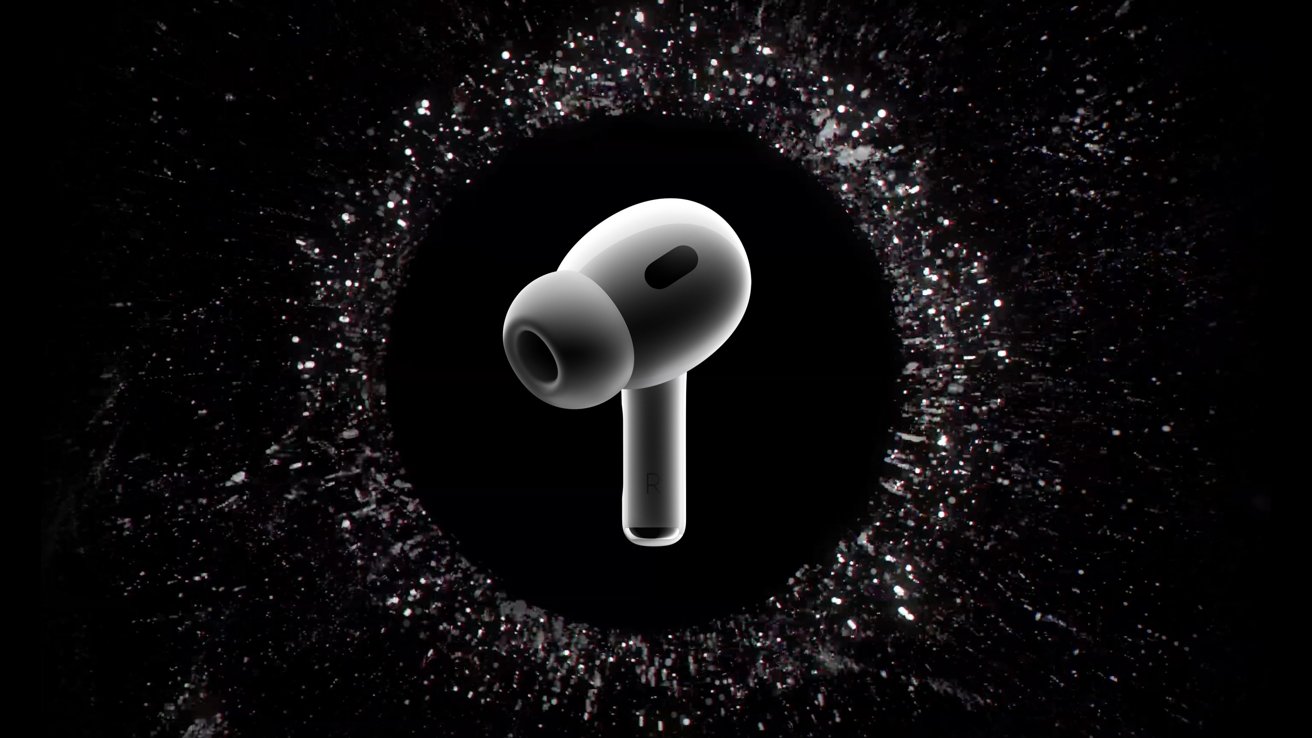A new study reveals that AirPods Pro are roughly on par with prescription hearing aids, although they can't replace the medical-grade devices in all situations.
Apple has some features designed to help people with mild hearing loss. One, called Live Listen, allows people amplify the sounds in their environment using AirPods.
Next, Conversation Boost uses the beam-forming microphones on AirPods to achieve a similar boost in sound, but specifically for conversations.
A study published Tuesday in the journal iScience found that the features helped adults with mild-to-moderate hearing loss hear speech almost as well as two prescription hearing aids from other companies.
The AirPods Pro didn't meet Food and Drug Administration (FDA) standards for hearing aids. But they enhanced sound as well as some less-advanced hearing devices.
"They won't replace hearing aids but it's a good way for people to experience what the world would be like if they could get some help, an upgrade for their hearing," said Yen-Fu Cheng, an ear, nose and throat specialist at Taipei Veterans General Hospital in Taiwan, who co-wrote the study.
Dr. Cheng and his colleagues also found that AirPods 2 couldn't alleviate the hearing loss acceptably.
During the study, 21 adults with mild-to-moderate hearing loss were given hearing tests while wearing Apple AirPods with the Live Listen feature activated. They also took the test while wearing a basic pair of hearing aids and a premium set.
They reported the best experience with the premium hearing aids that cost $10,000. However, the AirPods Pro performed almost as well, and the AirPods 2 performed notably worse.
The AirPods Pro met standards in four out of five categories, while the AirPods 2 met criteria for two categories in a sound and clarity test. The AirPods Pro surpassed the ideal threshold for internal noise levels to assist wearers in distinguishing between softer sounds and speech.
According to Michele DiStefano, director of the Shelley and Steven Einhorn Audiology Center at the Center for Hearing and Communication in New York, limitations of AirPods as hearing aids include their battery life.
Users can expect up to five hours of listening time with a single charge and up to three hours of talk time with a single charge. The second-generation AirPods Pro can deliver up to six hours of listening time with a single charge, and up to 4.5 hours of talk time.
 Andrew Orr
Andrew Orr







-m.jpg)







 Wesley Hilliard
Wesley Hilliard

 Oliver Haslam
Oliver Haslam
 Christine McKee
Christine McKee
 Amber Neely
Amber Neely










12 Comments
As an Audiologist this is awesome!! I already advise my patients with mild loss and an iPhone to get AirPods instead of forking out thousands for hearing aids. Although $10,000 is ridiculous!! (Come to Costco. Disclaimer - I work there.)
Assuming that AirPods can be programed if modified, it seems obvious to me that a "filter" could be designed to conform to an audiologist's prescription.
I've been waiting for someone to point out how much better Conversation Boost is than Live Listen. It's like this study was done years ago rather than in 2022.
It took some experimentation with my AirPods Pro 2 to achieve optimal settings, but the Conversation Boost is really amazing for hearing conversations that would otherwise give me challenges, and I just turn my head toward the person speaking for more clarity through the AirPods.
In the past I tried Live Listen, but it really only works if i can put my phone near the person speaking and picks up room noise as much as it picks up the voice. I never really used it for those reasons.
I love being able to change from Noise Cancellation to Transparency with Conversation boost with a squeeze of the Pro's stem. And back to NC as soon as the conversation is complete.
I find I like conversation boost more for listening to others. I don’t care for the break up in the sound of my voice. I’d love to know how to adjust that. My hearing drops off after 12kHz. Conversation boost may not be meant for me. I guess I need to see an audiologist.